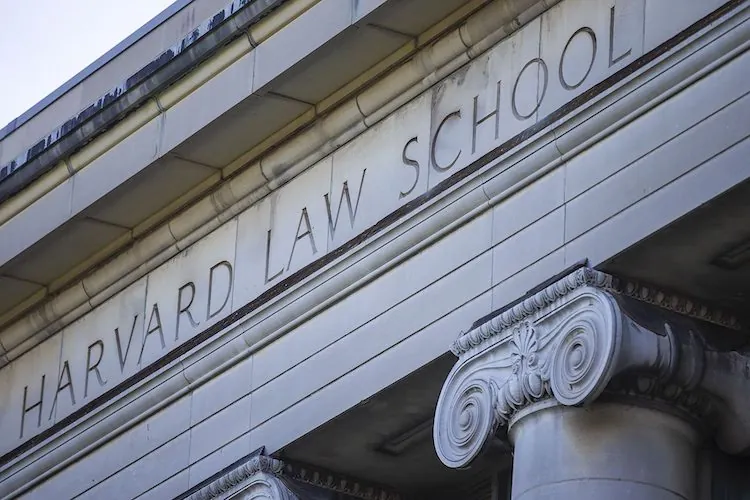
Harvard Law School
Harvard vs. Yale: Which Law School is Better?
Harvard and Yale have long been pitted against one another when it comes to law school prestige. Both are home to U.S. Presidents, Supreme Court Justices, political leaders, artists, CEOs, and more. The two consistently rank in the top three year-after-year with U.S. News.
So, which is better?
Matt Symonds, Co-Founder and Director at Fortuna Admissions, believes each law school has its own strengths and the answer of which is better isn’t so clear cut. Symonds recently broke down some of the key differences between the two law schools and offered an in-depth look at where Harvard and Yale both shine.
CAREER PROSPECTS
In terms of career prospects, you can’t go wrong with either law school. Both Harvard and Yale boast strong employment outcomes with grads going on to secure prestigious clerkships, positions in top law firms, and government roles.
For industry-specific roles, Yale sends a higher percentage of law grads to public interest and government roles, while Harvard has more alumni in the corporate sector.
When comparing median earnings, Harvard Law grads earn $233,589 four years after graduation, while Yale Law grads earn $204,668. Columbia Law grads earn the most four years after graduation at $280,926.
LEARNING ENVIRONMENT
If you’re looking for more personalized learning, Yale Law has a smaller student-to-faculty ratio at 5:1, while Harvard’s is 7:1. But, at Harvard, you’ll get access to a larger faculty and a broader range of courses and specializations.
Location also plays an integral role in the learning environment. Located in Cambridge, Harvard Law gives students access to immense legal opportunities in neighboring Boston, which can come handy for internships and clerkships. Yale Law is based in New Haven, Connecticut and offers a quieter, more campus-focused environment.
SELECTIVITY AND RANKING
Yale has a slightly higher selectivity rate, admitting 4.7% of applicants, while Harvard’s acceptance rate is 6.8%.
Rankings-wise, Yale Law has consistently ranked number one since 1991, according to U.S. News. But in other rankings, such as the QS Quacquarelli Symonds subject ranking, Harvard takes the top spot. This year’s 2023/24 Fortuna ranking places Yale at number one.
A PERSONAL CHOICE
Ultimately, choosing between Harvard and Yale for law school is a personal choice—and you can’t really go wrong with either.
“The choice ultimately depends on your personal preferences, career goals, and learning style,” Symonds says.
The law school you choose depends highly on your personal learning preferences, your background, and your future goals.
“It’s essential to conduct thorough research, visit the campuses if possible, and consider which school aligns most closely with your aspirations as a future attorney,” Symonds says. “In the end, your dedication and hard work will play a more significant role in your legal career success than the name on your diploma.”
Sources: Forbes, Yale Law, Harvard Law
